
Quagga
Quagga
Quagga
When we think of zebras, their striking black and white stripes come to mind. But in South Africa, there once lived an unusual zebra with a distinctive appearance. Its name was the quagga. With stripes only on its forequarters and a solid brown hindquarters, it was a unique creature. Sadly, they became extinct in the 19th century, but efforts are now underway to bring them back. Let's delve into the story of the quagga, a zebra lost and perhaps found.
Quagga Basic Infomation
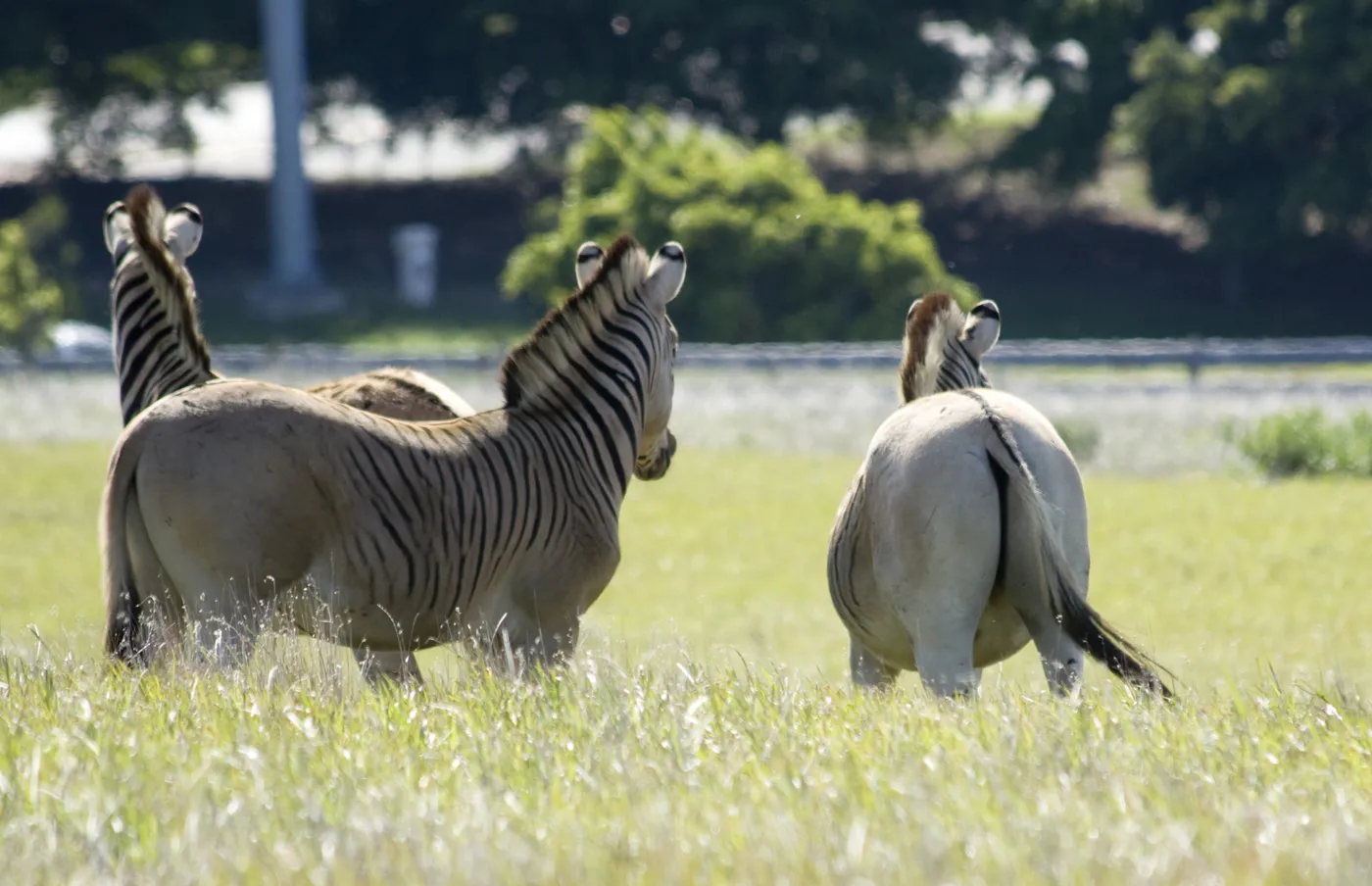
| Property | Value |
|---|---|
| Scientific Name | Equus quagga quagga |
| Taxonomic Status | EXTINCT |
| Rank | SUBSPECIES |
| Vernacular Names | Quagga |
| Kingdom | Animalia |
| Phylum | Chordata |
| Class | Mammalia |
| Order | Perissodactyla |
| Family | Equidae |
| Genus | Equus |
| Habitats | Grasslands of South Africa |
| Conservation Status | EXTINCT |
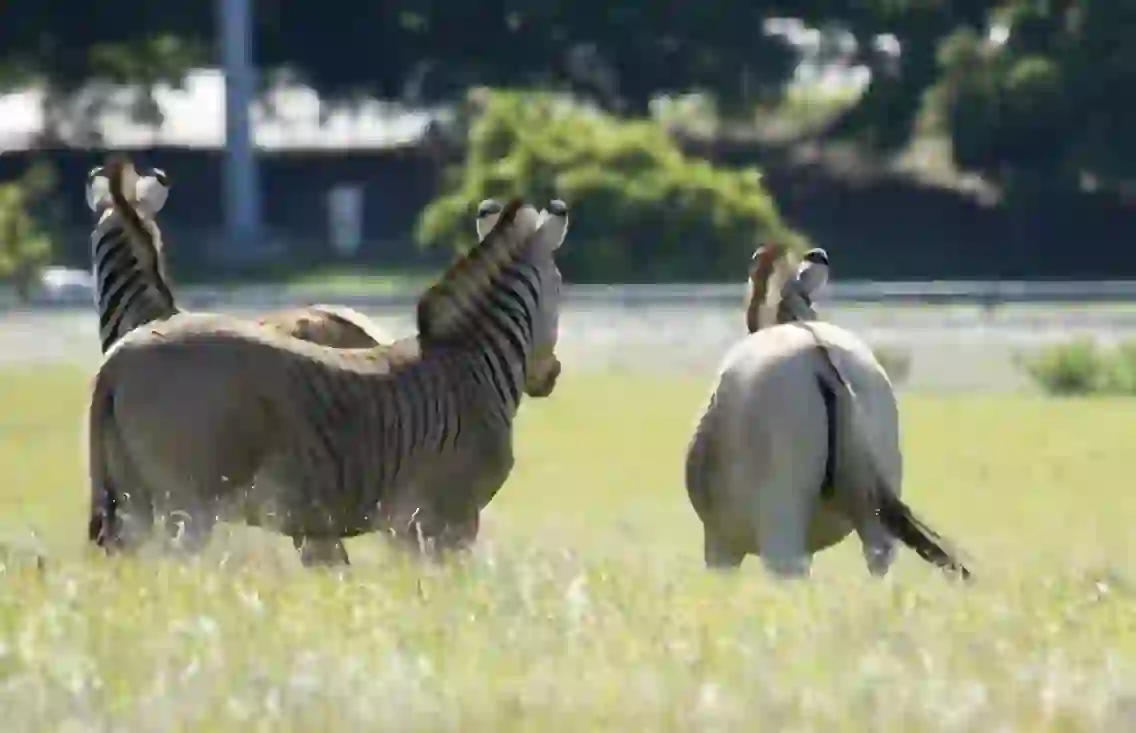
Size
They were about 8.2 feet (2.5 meters) long and weighed around 550 to 660 pounds (250 to 300 kilograms). This is about the same size as the modern plains zebra.
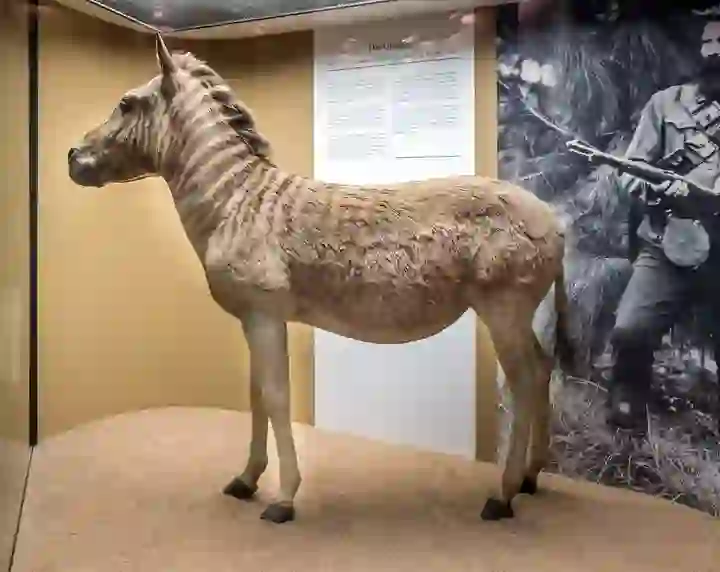
Lifespan
Their lifespan in the wild is estimated to have been about 20 years, but they may have lived longer in captivity.
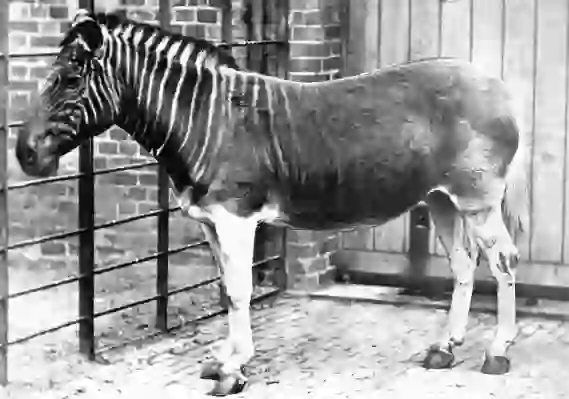
Distribution
They were once widely distributed in the grasslands of South Africa, from the eastern Cape Province to the Orange Free State.
Quagga Q&A

What kind of zebra was the quagga?
The quagga was a subspecies of the plains zebra that once roamed the grasslands of South Africa.
Their most distinctive feature was their unique stripe pattern. The quagga had the typical black and white stripes of a zebra on its forequarters, but its hindquarters were solid brown, without any stripes. This was a stark contrast to other zebras. Like other zebras, they were herbivores, primarily grazing on grass. They lived in herds, migrating across the vast grasslands to find food. The quagga became extinct in 1883. Their extinction was primarily due to human activities. In the 19th century, European settlers hunted quaggas in large numbers for their hides and meat. They were also seen as competitors for livestock, leading to their extermination. Furthermore, their grassland habitat was converted into farmland, leaving them with nowhere to live. These combined factors led to the quagga's tragic extinction.

What is the origin of the name 'quagga'?
The name 'quagga' comes from the sound they made when they called out.
Their call sounded like 'kwa-ha-ha,' which the locals called 'quagga.' When Europeans discovered this animal, they adopted the local name, giving us the name 'quagga.' The scientific name is 'Equus quagga quagga'.

[Quiz!] Can the quagga be brought back to life?
The quagga went extinct in 1883, but in recent years, a project called the 'Quagga Project' has been attempting to revive them.
This project began in South Africa in 1987. The goal is to bring back the quagga by selectively breeding plains zebras that resemble the quagga. Specifically, they are selecting and breeding plains zebras with faint stripes on their hindquarters, like the quagga. Then, they repeatedly select and breed the offspring that most resemble the quagga. This project is still in its early stages, but they have already produced zebras that resemble the quagga. In the future, they plan to reintroduce these zebras to the grasslands of South Africa, the quagga's former habitat. The Quagga Project is a testament to the potential for de-extinction. Only time will tell if it will be successful, but the project gives us hope.
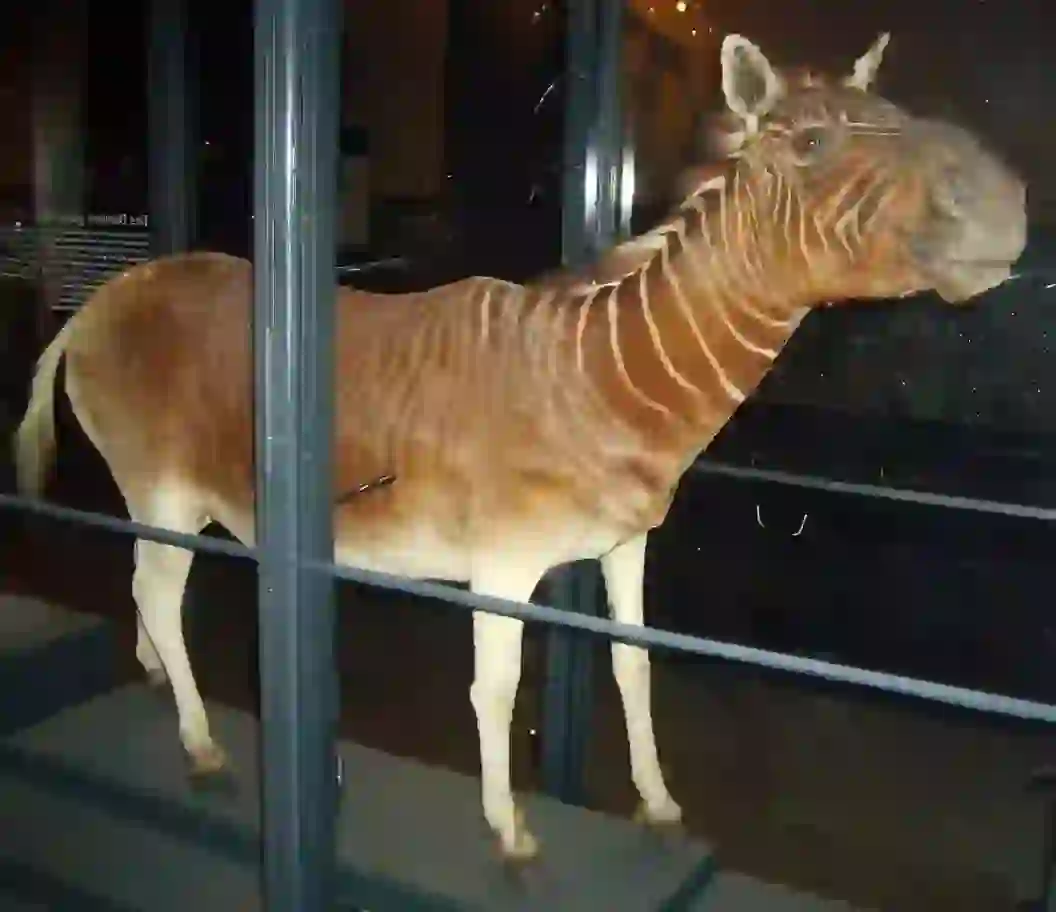
[Quiz!] Are quaggas the same species as zebras?
The quagga is a type of zebra.
They are classified as a subspecies of the plains zebra. There are three main types of zebras:
・Grévy's zebra: The largest of the zebra species, found in Kenya and Ethiopia.
・Mountain zebra: Found in mountainous regions. They live in South Africa and Namibia.
・Plains zebra: Widely distributed in the savannas of Africa. They are found in the eastern, central, and southern parts of the African continent.
The quagga was a subspecies of the plains zebra. They once lived in the grasslands of South Africa.

Would you like to become a part of the 'Animalbook.jp'?
Turn your knowledge into Q&A and share it with the world. ※Publication will be activated after purchase. Let's share information together!
Quagga Type of List

Characteristics of the Quagga
- Subspecies of the plains zebra
- Black and white stripes on the forequarters
- Solid brown hindquarters
- About 8.2 feet (2.5 meters) long
- Weighed about 550 to 660 pounds (250 to 300 kilograms)
- Lived in the grasslands of South Africa
- Became extinct in 1883
- Currently being revived through the Quagga Project
Information
Congratulations! You are the first commenter!

Create Your Favorite List!
Quagga
Save the animals you love! Build your own list to quickly revisit your favorites later.

Would you like to leave a comment?
※Please note: This is for the purchase of rights to post comments within the article.
Find Your Favorites!
Our shop offers a unique and attractive selection of goods themed around various animals.
Quagga References
Quagga Introduction of media used

Oggmus, CC BY-SA 3.0, via Wikimedia Commons

Ermell, CC BY-SA 4.0, via Wikimedia Commons

Frederick York (d. 1903), Public domain, via Wikimedia Commons

FunkMonk, CC BY-SA 3.0, via Wikimedia Commons
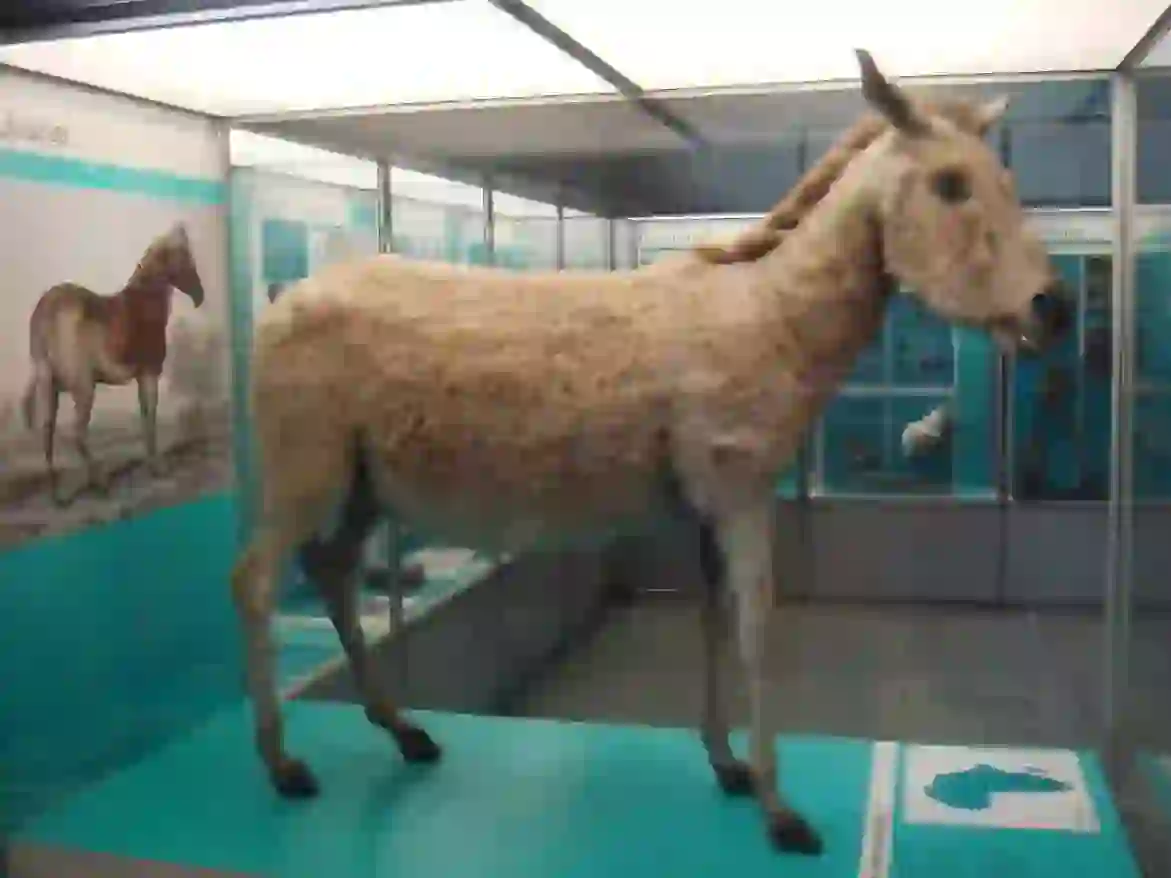
Stefano Bolognini, CC BY 3.0, via Wikimedia Commons
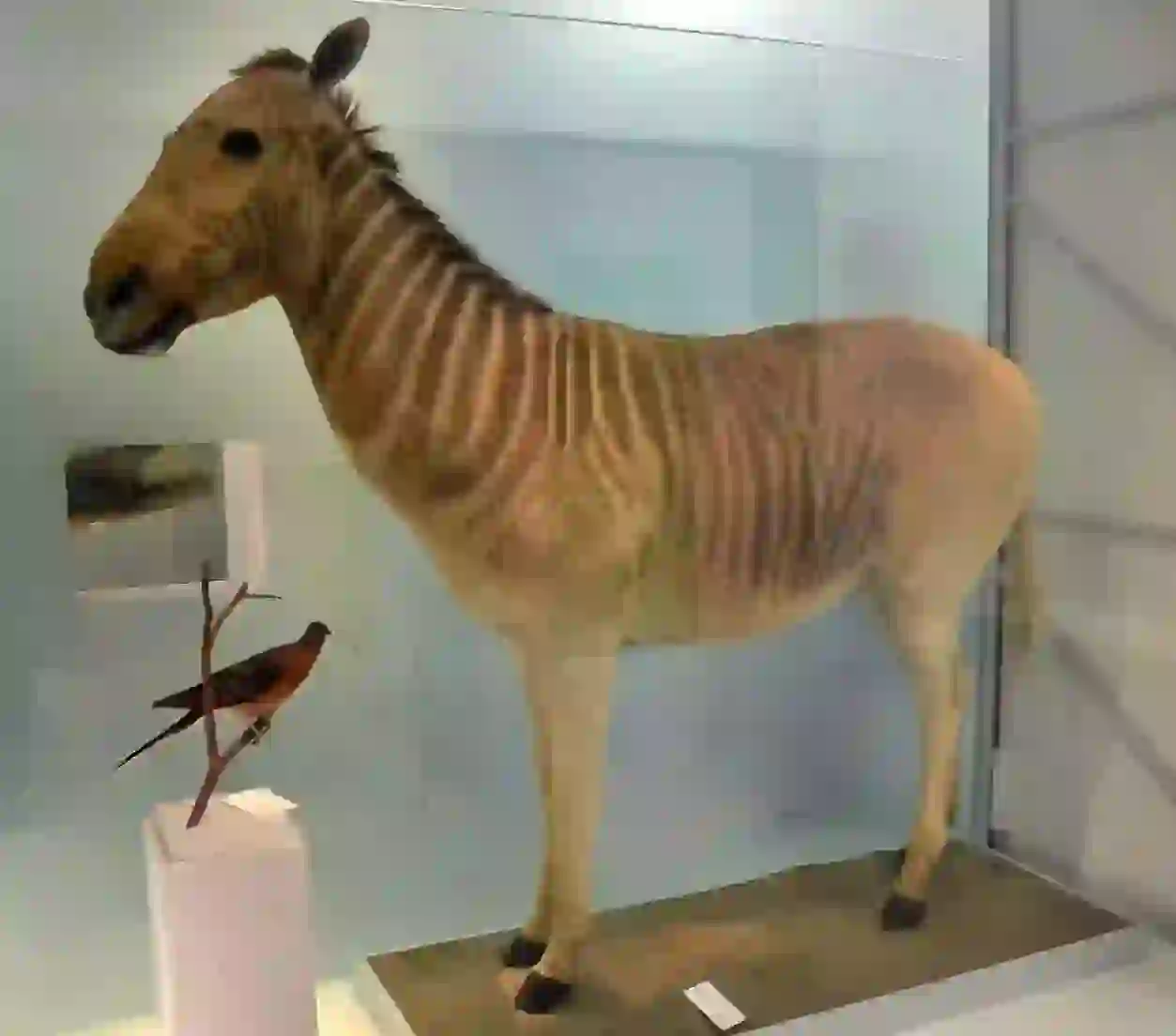
Vassil, CC0, via Wikimedia Commons

Help Enrich Our Animalbook.jp with Your Media!
We are constantly looking to expand and enrich our Animalbook.jp with amazing photos and videos of animals. If you have any media that you'd like to share, please contribute and help us showcase the beauty and diversity of the animal kingdom. Your submissions will be credited and featured in our encyclopedia, reaching a wide audience of animal lovers.


















